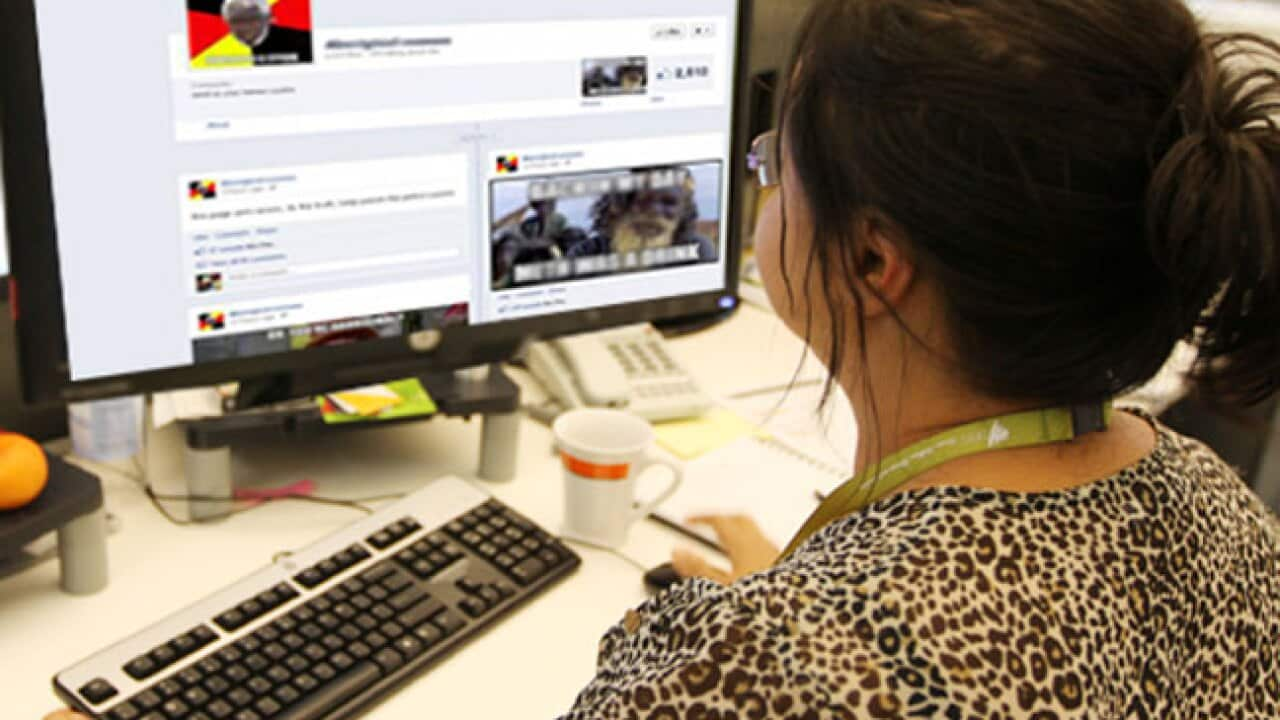Provoking, insulting, doggedly pushing their opinions or just being outright rude: Trolls exist to upset us, and that's a good thing, argues Laurel Papworth. She speaks to Rhiannon Elston about the murky waters of online agitating.
Insight: Trolls - tonight at 8.30pm on SBS ONE
Trolling laws 'inadequate', lawyer tells Insight
RE: Why do we need trolls in our online communities?
LP: I think first of all we have to define trolls and simply, it's not just people who disagree with us in a way that we don't like. So as much as we'd like everybody to think the same as us and have mild disputes, sometimes people are very passionate about the way that they reject us and our ideas and that can feel like trolling. As far as being cyber-bullied, that's a systemic trolling where it goes on for a long period of a time so it's usually not just a one-off comment or a short period of time over an hour, but it is continued activity.
Trolling itself at a really fundamental level or how I've perceived it in online communities over the years is really somebody who doesn't care an awful lot about what the debate is about. They like the drama of creating havoc, if you like.
RE: So, you're talking about trolling on the one hand and cyber-bullying [on the other] as two separate things. Should they be treated differently?
LP: Yeah, definitely. The intent behind the two is very different, quite often. Cyber bullying is usually a power play. It is definitely, deliberately to cause aggravation to someone.
Trolling, on the other hand is about getting people upset and in a lather by presenting a defensible but obnoxious point of view. And it's often bringing a point of view to a community that in no way would support that point of view. Typical trolling that we see are things like 'lactivist' groups… which are women who support breastfeeding; posting up photos of breasts and breastfeeding on the 'Imams of Islam' Facebook pages and online communities in order to cause outrage in those communities. They have a defensible argument, but they take the argument into a group that will react.
RE: One thing you've been saying is that you actually think this is a good thing for online conversation.
LP: It's a good thing because it forces us continually to look at certain questions in societies and sometimes if people agree on everything, or they don't like to speak up because the norm - the way society reacts normally - is the acceptable behaviour... then the troll clearly is playing that role of saying, 'You know what I'm just going to go ahead and be the obnoxious one here'. And in a sense, they point out the elephant in the room, or if the emperor has no clothes. And we have comedians in our society that do that.
RE: We recently saw a case where Aboriginal memes were being posted to Facebook – very hurtful and racially vilifying -- but Facebook was reluctant to remove that page. In fact, I think it ended up being taken down by the people who created it. Do you think Facebook should have stepped in?
LP: There are certainly situations where you report things and you would expect them to be taken down, but we have to be extremely careful about telling an American company that they're allowed to censor Australian citizens. Because - and unfortunately one man's joke is another man's vilification – this has always been the case. I might dislike blonde jokes, because by the way I happen to be blonde, someone else finds them funny.
The reason it's a dangerous path is because if Australia can insist that Facebook take down Australian pages, then – by the way – so can the Chinese government and so can the Saudi government. So if they find something objectionable, then absolutely the government has a right to ask them, Facebook and Twitter, for those details.
Do you agree that trolls are a good thing for online communities? Leave us a comment with your thoughts.
Watch the interview on YouTube:

